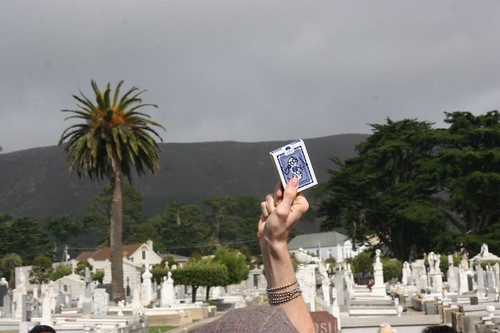"Major," said he, "did you ever, as you walked along the empty street upon some idle afternoon, feel the utter hunger for something to happen--something, in the splendid words of Walt Whitman: 'Something pernicious and dread; something far removed from a puny and pious life; something unproved; something in a trance; something loosed from its anchorage. and driving free.' Did you ever feel that?"
Is there any space where you have hungered for something playful or adventurous to happen? What was it about the space that made you wish for more? What kinds of places, in general, make you wish something like a game would intervene?
"We believe that we are doing a noble work," said Northover warmly. "...We give [the player] a glimpse of that great morning world of Robin Hood or the Knights Errant, where one great game was played under the splendid sky. We give him back his childhood, that godlike time when we can act stories, be our own heroes, and at the same instant dance and dream."
Can digital game design be considered a noble work? Not just ubiquitous games, but any games? Pick a specific genre of games -- ubiquitous games, adventure games, virtual worlds, first person shooters, action games, MMOs, rhythm games, whatever -- and defend your position. Why or why not?
Or: Feel free to pick any other quotation from the story that captured your attention, and explain why!
